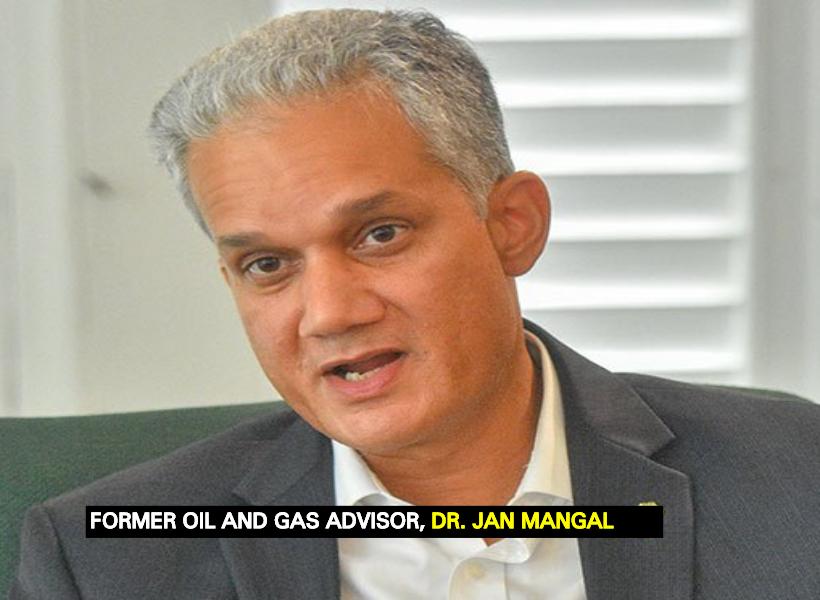The APNU+AFC Government is yet to decide if it will create a National Oil Company (NOC). The government is also still to decide if it will send oil to Suriname or Trinidad and Tobago for refining. Even as the administration continues to ponder the possibilities, former Petroleum Advisor, Dr. Jan Mangal has emphatically stated that Guyana should not pursue either avenue.
The Oil and Gas Consultant said, “Guyana should not send any of its oil to Trinidad as it will only be used to prop up corruption and inefficiency. Also, Guyana should not create a National Oil Company, at least for the next five years, as it will quickly become a haven for corruption.”
Dr. Mangal said that, “Some in Government and the private sector are now bent on setting up a NOC in Guyana, and it is clear why. They want to get their hands on the money.”
The former Presidential Advisor emphasized that his point is not only a moral one but an economic one.
He said this despite the fact that Minister of Natural Resources had announced that while government is still to make a definitive decision; it is leaning towards the establishment of an oil company.
Indeed, there are several NOCs around the world that have been plagued by corruption. A typical example would be neighbouring Brazil’s Petrobrass.
Mangal was also firm in his position that sending oil to Suriname or Trinidad would be a bad idea.
He insisted that Guyana will lose value by sending its oil to “an inefficient place like Petrotrin in Trinidad or to Suriname for that matter.” Dr. Mangal stressed that Guyana’s objective must be to maximize the value it gets from its oil on the world markets. He said that if TT or Suriname can compete, then great, “but if not, then sorry.”
Dr. Mangal also sought to paint a picture of the state of affairs in Trinidad and Tobago. The Oil and Gas Consultant noted that the country’s NOC—Petrotrin—is currently US$850M in debt, much of which is due in one year’s time.
Chairman of Petrotrin, Wilfred Espinet, is reported saying that the fluctuating price of oil over the years is not responsible for where Petrotrin is today, but rather, the cost of operation.
He said, “One of the big fallacies I want to remove is the price of oil has caused this. That is absolutely false. Petrotrin’s cost of operation is a problem. The management is a problem. Even when the cost of oil was US$110 a barrel we were losing money…”











